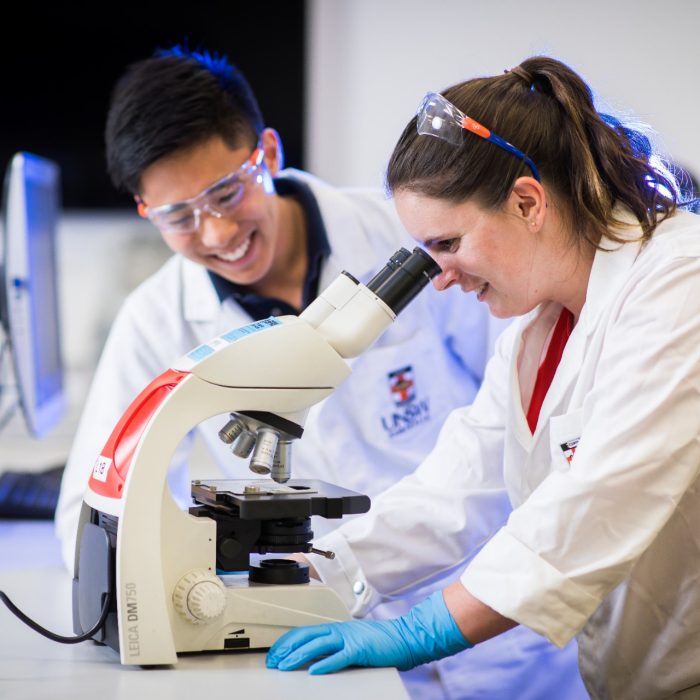Biotechnology

Explore the biological processes behind making products and performing services
Biotechnology can be defined as the use of biological systems to make products and perform services. Biotechnology is used for the production of biopharmaceuticals, food and beverages, bioenergy, industrial chemicals and in agricultural development. Biopharmaceuticals include monoclonal antibodies, hormones, vaccines, anti-inflammatory agents and new therapies for the diagnosis and treatment of cancer.
Rapid advances in disciplines such as high-throughput genomics and proteomics have resulted in a surge of capacity and knowledge to support medical technologies and synthetic biology. The world's ability to cope with many environmental, agricultural, manufacturing and medical challenges in the 21st century will depend heavily on advances in biotechnology.
The biotechnology program builds on the fundamental studies in biomolecular sciences, culminating in coursework that encompasses the core biotechnology disciplines of bioprocessing, medical biotechnology, synthetic biology and commercialisation.
Studying biotechnology at UNSW
The School of Biotechnology and Biomolecular Sciences (BABS) is based in one of the most advanced facilities of its type in Australia and one of the country's best research hubs for biotech innovation.
Careers in biotechnology
Work at the forefront of developing biopharmaceuticals, vaccines, new methods for chemical synthesis, applied genomics and finding new solutions to many of the major challenges of the 21st century. Our graduates are employed by medical research organisations, pharmaceutical multinationals, large life-sciences companies, legal firms, government research institutes and universities.
Our programs
-
You can study biotechnology in the following undergraduate degrees:
-
Gain research experience and enhance your career prospects with an honours degree. These programs are designed to connect your undergraduate study with supervised independent research. An honours degree also provides a pathway into further study, such as a Masters by Research or PhD. You can take honours as a standalone degree or as part of an embedded honours program.
Embedded honours programs
Standalone honours program
Honours in the School of Biotechnology and Biomolecular Sciences (BABS)
BABS offers honours programs in the following areas:
- microbiology and microbiomes
- genomics and bioinformatics
- molecular and cell biology
-
You can study biotechnology in the following postgraduate coursework program:
-
You can study biotechnology in the following postgraduate research degrees:
